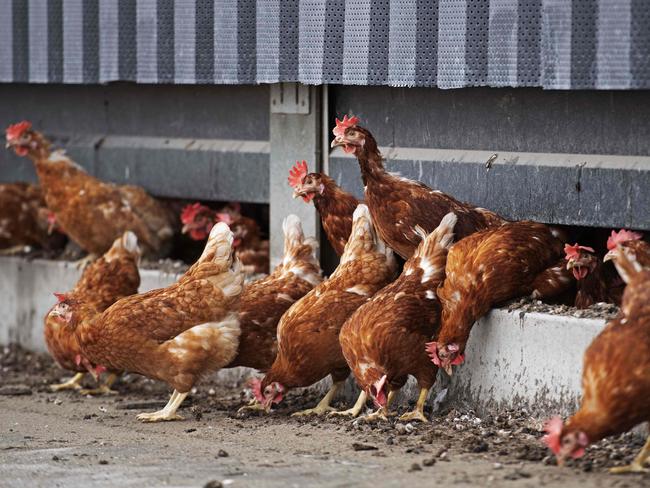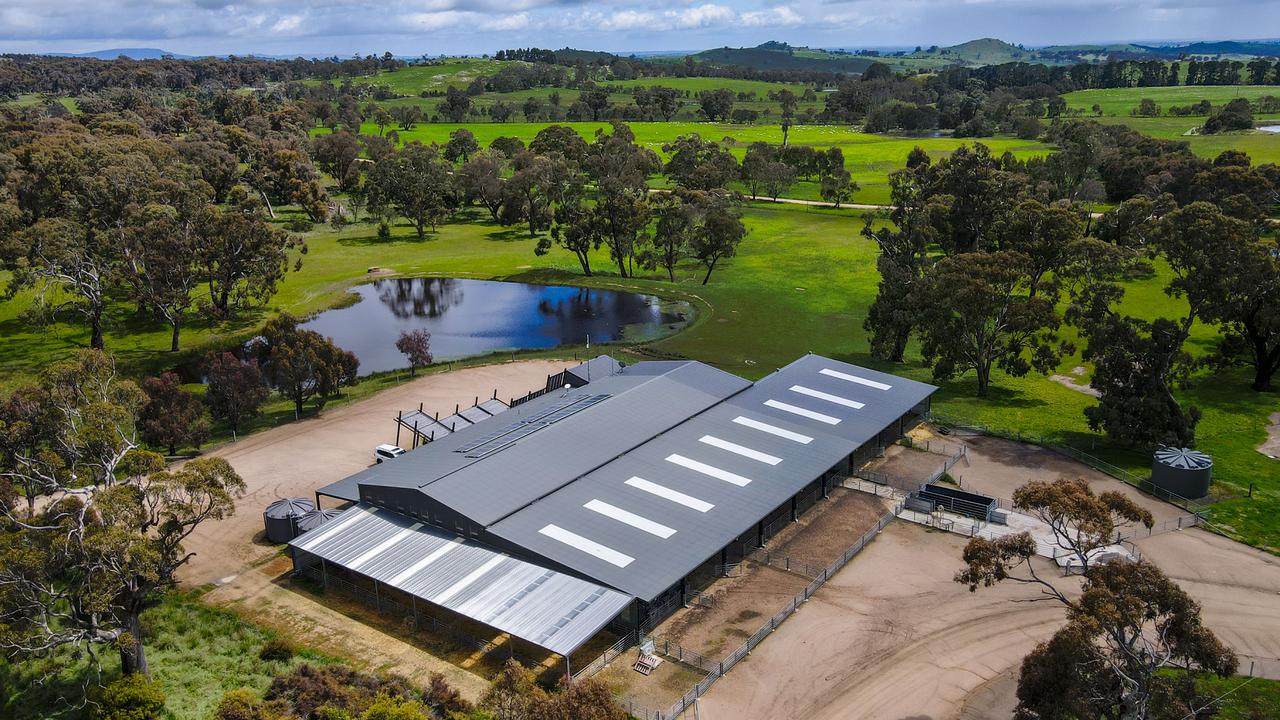Australia’s first case of human bird flu found in Victoria
Australia’s first human case of bird flu has been detected in a child in Victoria, as an egg farm near Meredith has been placed into quarantine in a separate scare.
Victoria
Don't miss out on the headlines from Victoria. Followed categories will be added to My News.
Australia’s first ever human case of bird flu has been detected in a child in Victoria, while an egg farm in the state’s west has been placed under quarantine over a separate outbreak.
But authorities moved to calm Victorians, reassuring them that egg and other poultry products from supermarkets were still safe to eat and human to human transmission was unlikely.
Agriculture Minister Murray Watt said the government was prepared, had enacted its emergency animal disease response plans and was “well practiced in responding to disease incidents in poultry”.
The separate human case was in a child, who had travelled to India and caught the H5N1 strain, which had never been detected in Australia until now.
Chief health officer Dr Clare Looker issued an alert on Wednesday and said the child, who came home in March, had “a severe infection but … has made a full recovery”.
“There is no evidence of transmission in Victoria and the chance of additional human cases is very low as avian influenza does not easily spread between people,” she said.
“Contact tracing has not identified any further cases.”

The health alert came shortly after an egg farm in Victoria’s west was placed under quarantine after birds began to die.
Authorities said the two cases were a coincidence, and it was a different strain — H7N7 — detected at the egg farm near Meredith.
University of NSW Biosecurity Program Head Professor Raina MacIntyre said the farm outbreak was “concerning”, but the fact it was H7N7 meant it would “likely be controlled quickly”.
“Avian flu viruses do not transmit easily in humans … but they can mutate,” he said.
“A human pandemic of influenza would be much more severe.
“Fortunately, we are well prepared for human vaccines.”
Queensland University Influenza Virologist Dr Kristy Short said it was “reassuring” it was a H7 virus.
Australian National University Associate Professor of Medicine Senanayake said the farm outbreak was “not good news” and hoped “large culls won’t be needed”.
He said it was vital to terminate the outbreak as “soon as possible”, as more infections give the virus more opportunities to mutate into a more human-friendly form.
“The next pandemic could be just around the corner, and a strain of bird flu is a likely candidate,” he said.
Senator Watt said while it was a relief the farm outbreak was not the strain that is affecting other countries such as the US and Antarctica, Australia took any incident “extremely seriously”.
“Australia … has successfully responded to eight outbreaks of Highly Pathogenic Avian Influenza in poultry since 1976,” he said.
“In all those cases, we were able to eradicate the disease successfully and rapidly with minimal spread between farms.”
Originally published as Australia’s first case of human bird flu found in Victoria



